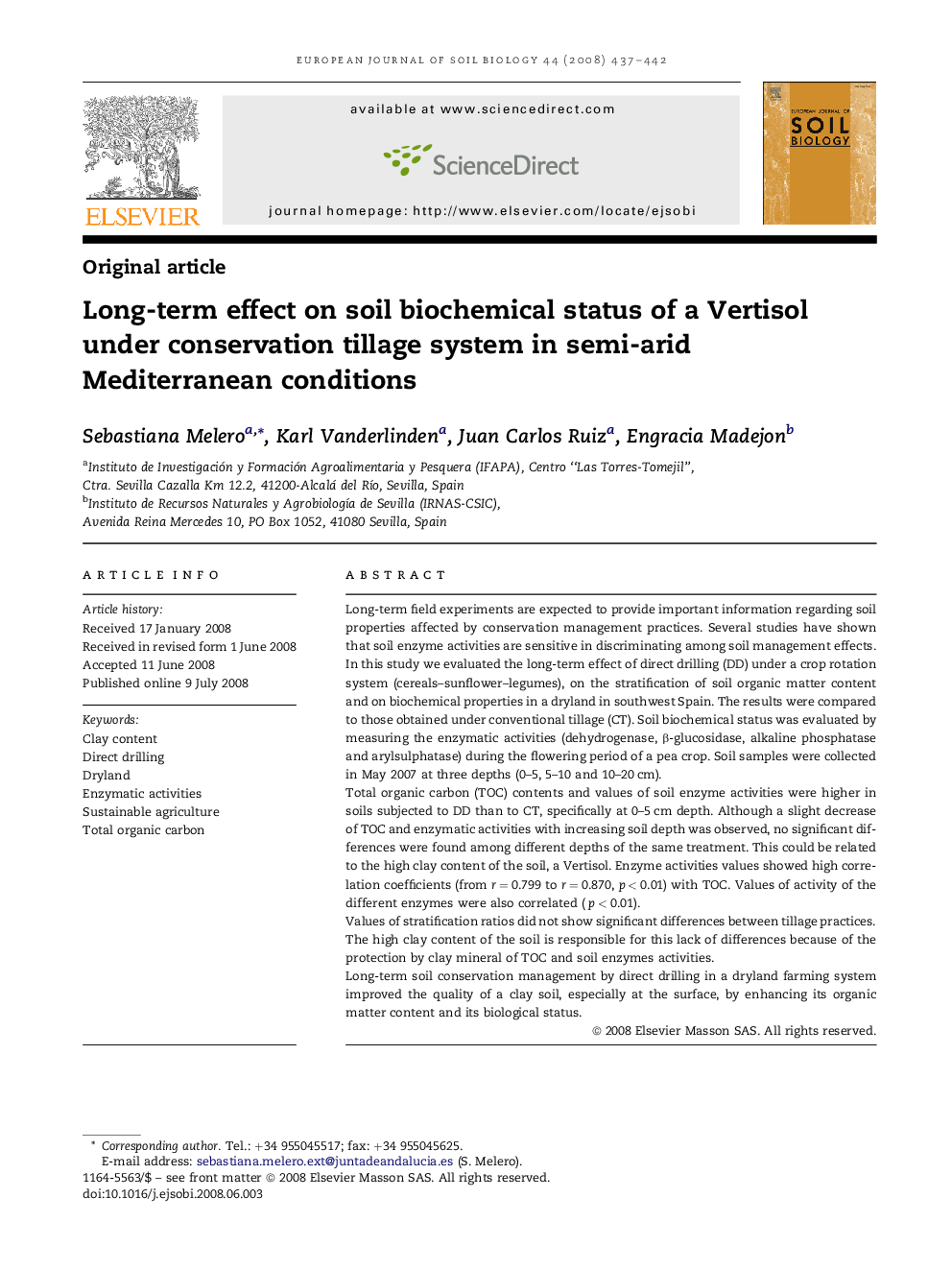| Article ID | Journal | Published Year | Pages | File Type |
|---|---|---|---|---|
| 4392247 | European Journal of Soil Biology | 2008 | 6 Pages |
Long-term field experiments are expected to provide important information regarding soil properties affected by conservation management practices. Several studies have shown that soil enzyme activities are sensitive in discriminating among soil management effects. In this study we evaluated the long-term effect of direct drilling (DD) under a crop rotation system (cereals–sunflower–legumes), on the stratification of soil organic matter content and on biochemical properties in a dryland in southwest Spain. The results were compared to those obtained under conventional tillage (CT). Soil biochemical status was evaluated by measuring the enzymatic activities (dehydrogenase, β-glucosidase, alkaline phosphatase and arylsulphatase) during the flowering period of a pea crop. Soil samples were collected in May 2007 at three depths (0–5, 5–10 and 10–20 cm).Total organic carbon (TOC) contents and values of soil enzyme activities were higher in soils subjected to DD than to CT, specifically at 0–5 cm depth. Although a slight decrease of TOC and enzymatic activities with increasing soil depth was observed, no significant differences were found among different depths of the same treatment. This could be related to the high clay content of the soil, a Vertisol. Enzyme activities values showed high correlation coefficients (from r = 0.799 to r = 0.870, p < 0.01) with TOC. Values of activity of the different enzymes were also correlated (p < 0.01).Values of stratification ratios did not show significant differences between tillage practices. The high clay content of the soil is responsible for this lack of differences because of the protection by clay mineral of TOC and soil enzymes activities.Long-term soil conservation management by direct drilling in a dryland farming system improved the quality of a clay soil, especially at the surface, by enhancing its organic matter content and its biological status.
